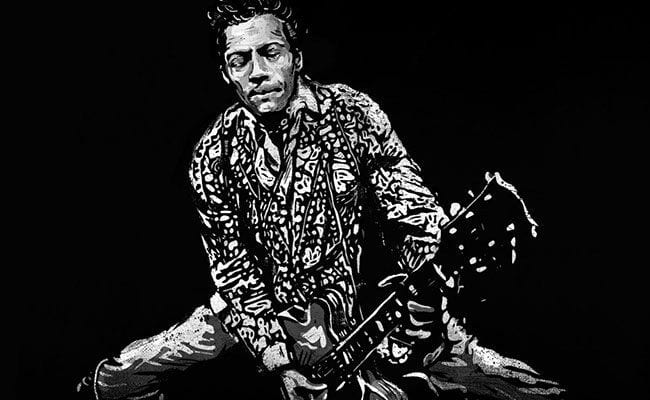
John Lennon famously said, “If you tried to give rock and roll another name, you might call it ‘Chuck Berry’”. Indeed, the recently deceased Berry was the first rocker with staying power both as a singer, writer, and performer whose classics such as “Johnny B Goode”, “Roll Over Beethoven”, “Maybellene”, “Sweet Little Sixteen” and many others form the core of the rock cannon. Berry’s influence and importance cannot be overstated. However, that was then this is now. The 90-year-old Berry planned to release a new album before he died, and it has been posthumously released. The good news is that while the man was no longer a groundbreaking creator of a new musical style, he still could rock in creative and energetic ways.
Berry always had a penchant for reusing musical formulas. Even in the beginning, he reused the same melody in several songs (think of “No Particular Place to Go” and “School Days”, for example). Berry employs a similar strategy on Chuck. He redoes old hits like “Havana Moon” as “Jamaica Moon” and “Johnny B Goode” as “Lady B. Goode” here. The familiar tunes are comfortable, like an old chair that still rocks on its runners despite its age.
However, Berry was not content to merely replay his old hits. The best songs on Chuck reveal his willingness to try new things even while evoking the past. For example, the lively “Big Boys” borrows liberally from “Johnny B Goode” (with Tom Morello on guitar) while taking the song on a joy ride through his search for pleasure. Berry understands how to coyly sing a line about “no ands, ifs, or buts” into a phrase laden with sexual implications. And there’s the jazz-tinged barroom ballad “Dutchman” a shaggy dog story that tells the tale of a musician and a femme fatale. The song goes nowhere on purpose to show the triviality of human existence and the unimportance of art. Life and love are but a mystery.
These have always been the themes of Berry’s music. The existential angst of living as a teenager in the ’50s or an old man abiding in the 21st century are not that different. The answer, or at least the best consolation, can be found in the arms of another human being. The strangest track here is Berry’s cover of “You Go to My Head”, a song popularized by Billie Holiday back in the 1930s. Holiday sang it with a lilt in her voice, a sweet and high sound that conveyed how love can make one giddy. Berry does it to a tinkling piano accompaniment and a New Orleans beat. The love made manifest here is one that lasts over time. The first track on the album “Wonderful Woman” is a tribute to his wife Toddy, and it seems that this one too concerns his enduring love for her. As a younger man, Berry was a notorious womanizer whose behavior was far from spotless. Age has made him appreciate what endures.
Berry’s joined by his son Charles Berry Jr and his daughter Ingrid making the album a domestic affair, and the song “Darlin’” explicitly addresses his role as a dad. This album was Berry’s first new one since 1997, and he knew it would be his legacy. He wanted to express and document what family meant to him. But in a sense, all rock and rollers are his children as his music was our father. Chuck reminds us once again of his patrimony.

